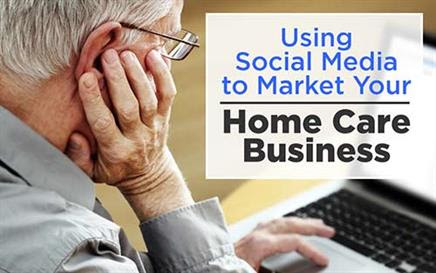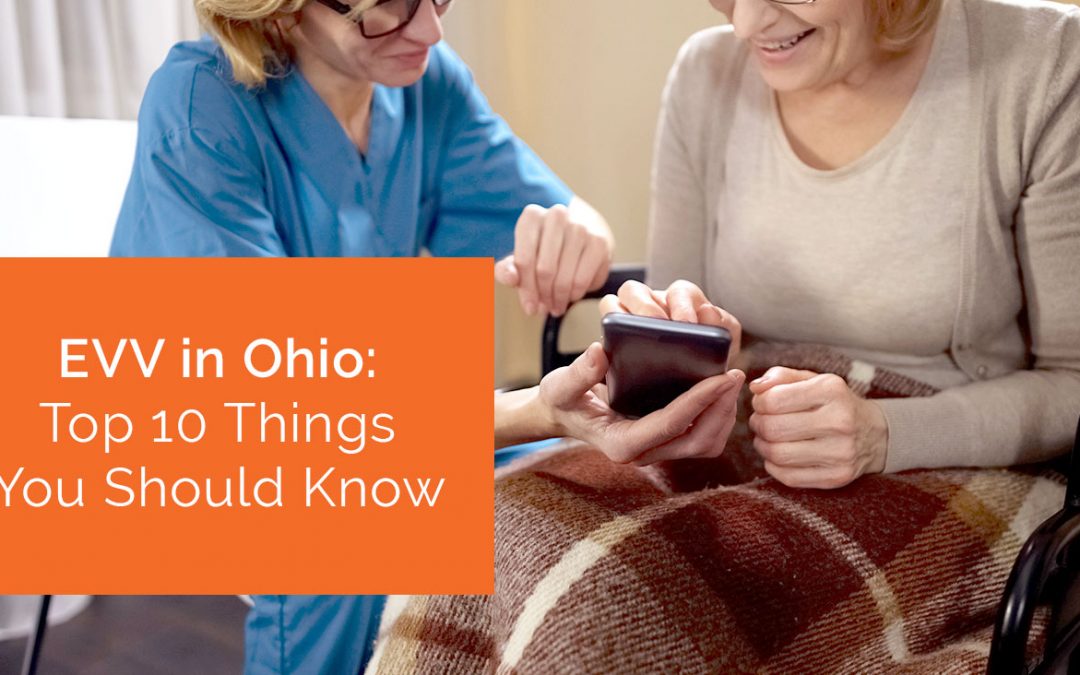These days, whenever anyone wants to find out information about anything, they go online. With a few keystrokes and clicks, it’s easy to find information about virtually anything — even home health care. Even families who receive recommendations or referrals for home health from their providers often spend some time online looking for more information and trying to learn as much as they can about their loved one’s condition, the home health agency, and what they can expect going forward.
Because there are so many sources of information that families can turn to for guidance, it’s important that your agency do as much as possible to make sure that you’re front and center when people need to find you. You also need to maintain some control over your branding and the impression that web users get about your agency. Your website is a great starting point, but social media also needs to be part of your internet marketing mix.
Why Social Media Matters
You might be thinking, “We have a Facebook page, but no one looks at it. Our audience isn’t there.”
The fact is, your audience most likely is on social media, but you aren’t doing enough to reach out to them and create a presence. It’s not enough to simply set up a social media accounts and post something once in a while. You need to engage users, and give them a reason to check you out. This is important for several reasons:
1. SEO. Most often, when people search for home health care services, they are looking for local providers. Having robust social media profiles is one of the best ways to boost your local SEO, since Google’s search engines crawl social media sites, and often return social profiles and content in the first page of search results. If your page is incomplete or out-of-date, you’re not going to reach the people searching for you. Don’t forget to keep your profile in Google Places, Yelp, and other local listings up-to-date as well to enhance your local SEO.
2. Building Community. When you put time and effort into social media, you can engage your community, and build a stronger tribe. Sharing relevant research, tips, news, and encouraging feedback and discussion can boost engagement, which in turn can increase your business and improve your ratings.
3. Keeping Clients Informed. Many people turn to social media as a source for news and information. Posting regular updates on everything from how local weather conditions are affecting daily visits to tips on how to make the best use of your home health software can help your clients and their families feel “in the loop.”
4. Supporting Your Authority. As a home health care provider, you can build trust within your community and establish your authority by sharing useful information with your followers. As you position yourself as a resource and expert on all things home health and aging care related, you can attract more attention and trust, which in turn can build your client base.
5. Establishing Your Brand. Social media allows you to show the “personality” of your business. As you share posts, photos, and give an insider’s perspective into your agency, your clients and potential clients get to know you, and feel more comfortable entrusting you with the care of their loved ones.
Doing Social ‘Right’
One reason that many agencies avoid social media is that they feel like it’s too much work, and they will never be able to keep up. While it is better to not include social media at all if you are only going to post sporadically and not engage, it doesn’t have to be an all-consuming process either. You can keep it manageable by:
1. Choosing only a few social sites to join. Facebook and LinkedIn are the most important for a business; Twitter, Instagram, and Pinterest can provide some value, but if you don’t have time to maintain multiple sites, you don’t need to include them.
2. Curating content. There are differing opinions about how often businesses should post on Facebook, but at least a few times a week is ideal. Try posting different types of content. Some ideas: Links to your latest blog posts, news updates related to your business or health care, photos of your staff, tips and ideas for caregivers, and questions for engagement.
3. Scheduling engagement. Reply to your followers when they ask questions, engage in conversations, and be present. You don’t need to spend every minute online, but don’t just post and disappear.
4. Setting goals. Before you begin your social media campaigns, set goals for what you hope to accomplish. Whether it’s a certain number of posts per week, a certain number of followers, or a certain number of inquiries, setting goals allows you to measure your results and gauge your success.
A Word About HIPAA
While surveys show that most people are comfortable sharing their own health information on social media, the rules are different for health care providers. You must have a clear social media policy that follows HIPAA guidelines, and avoid posting any patient information or photographs without express written permission of the patient or his or her representative. Many health agencies also develop a commenting policy that allows them to delete revealing or offensive material, and prevents users from uploading photographs or videos.
Incorporating social media into your HHA’s marketing is a smart move, and can help you build your client base and customer loyalty. To learn more about how Complia Health can help you grow your agency, check out some of our resources here.
ere.




